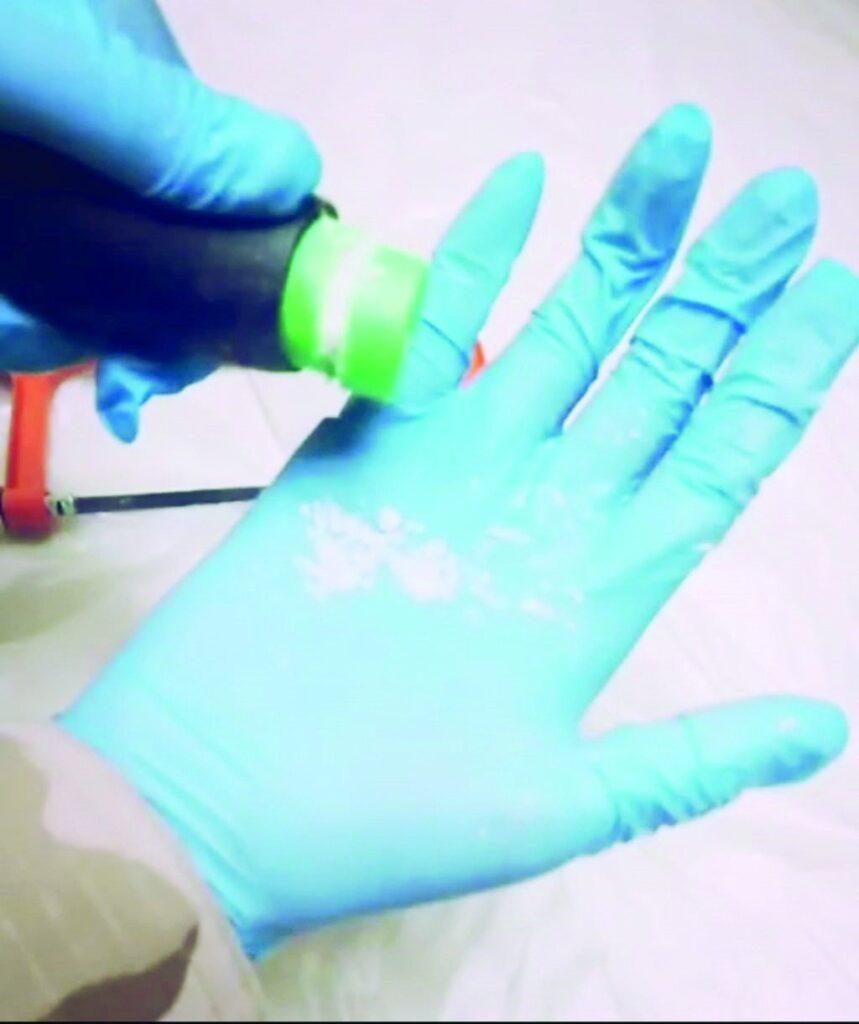Karachi:
The use of the dark web and social media platforms to provide drugs using cryptocurrency has reached alarming levels, which poses new challenges for Pakistan’s anti-narcotic efforts. Authorities report a growing influx of weeds and cocaine from Western and African countries along with a troubled shift from plant -based substances to synthetic drugs.
The law enforcement authorities tighten the controls of drug smuggling via courier and package services – routes are increasingly utilized by human traffickers seeking to bypass conventional control points. In the past year, 33 drug trafficking groups, including a prominent Nigerian network, have been wound up.
Smugglers also adopt increasingly sophisticated methods of hiding drugs, often hiding them in sporting products, surgical instruments and textile shipments – tactics not only as criminals, but as an attempt to harm Pakistan’s global reputation.
According to Brigadier Syed Imran Ali, the director of the enforcement of anti-narcotics (anf) headquarters Pakistan has maintained its poppy status since 2001, a milestone confirmed this year.
In a briefing in Karachi, Brigadier Ali noted that Pakistan’s geographical location makes it an important transit route to international drug trafficking. He expressed concern about the increasing use of the dark web and social media platforms for buying drugs through cryptocurrency and termed it as a growing threat. Human traffickers, he added, is increasingly changing from plant -based substances to synthetic drugs. Recent AF operations have revealed significant influxes of weeds and cocaine from Western and African countries.
Brigadier Muhammad Umar Farooq, Regional Directorate Chief Sindh, said a significant aspect of drug smuggling involves the courier and package system, both internationally and domestically. While larger courier offices are equipped with scanners and require documents such as copies of national identity cards and complete addresses of senders and recipients, human traffickers utilize loopholes at the neighborhood level. As a result, institutional measures are further strengthened to counter drug smuggling through couriers and packages.
Outside of Pakistan’s population of 240 million, approx. 170 million aged 18 and 31 years. Protecting this huge youth demographic against drugs is a national responsibility. While the Anti-Narcotics Force (ANF) continues its efforts to limit drug smuggling, there is an urgent need for widespread social consciousness. Tackling this challenge requires collective action across all social sectors.
Providing details of crashes carried out in 2024 and the current mid-year period-tensioned about a year and a half-declared an official that joint operations with different persons and institutions resulted in the seizure of 452 tonnes of drugs. Of this, anf came back alone over 244 tonnes, accounting for more than 58 percent of all anti-drug operations.
At airports across the country, 436 were suspected, and attempts to smuggle drugs through 373 packages were foiled. Maritime operations led to the seizure of 19 containers. The efforts to smuggle drugs to the Gulf countries were also averted, resulting in arrest of 403 suspects and the seizure of 5,783 kg of drugs.
In collaboration with international organizations, 44 maritime operations were performed against drug trafficking networks, which led to dismantling of 33 groups, including a Nigerian syndicate.
Attempts to malignate Pakistan’s reputation through drug smuggling hidden in sporting products, surgical instruments and textile products have been uncovered. Nationals from Afghanistan and Nigeria have been found to be more frequently involved in these operations. Meanwhile, Pakistan ranks fifth among the countries most affected by climate change. In line with environmental considerations, anf -burned substances are burning drugs in safe facilities rather than burning them in open fields.
The increasing use of drugs in educational institutions is alarming. Anf has performed several operations around these institutions and seized 1,420 kg of medicine. A total of 363 operations aimed at limiting drug spreading were performed, which led to the arrest of 421 suspects identified through intelligence as suppliers to students.
Since 2005, the rehabilitation effort has helped 30,000 drug addicts return to normal life. Anf is not only targeted at those involved in the drug trafficking, but also actively pursues litigation to ensure their beliefs. After arrests, Anf has achieved an impressive conviction rate of 85 percent.



